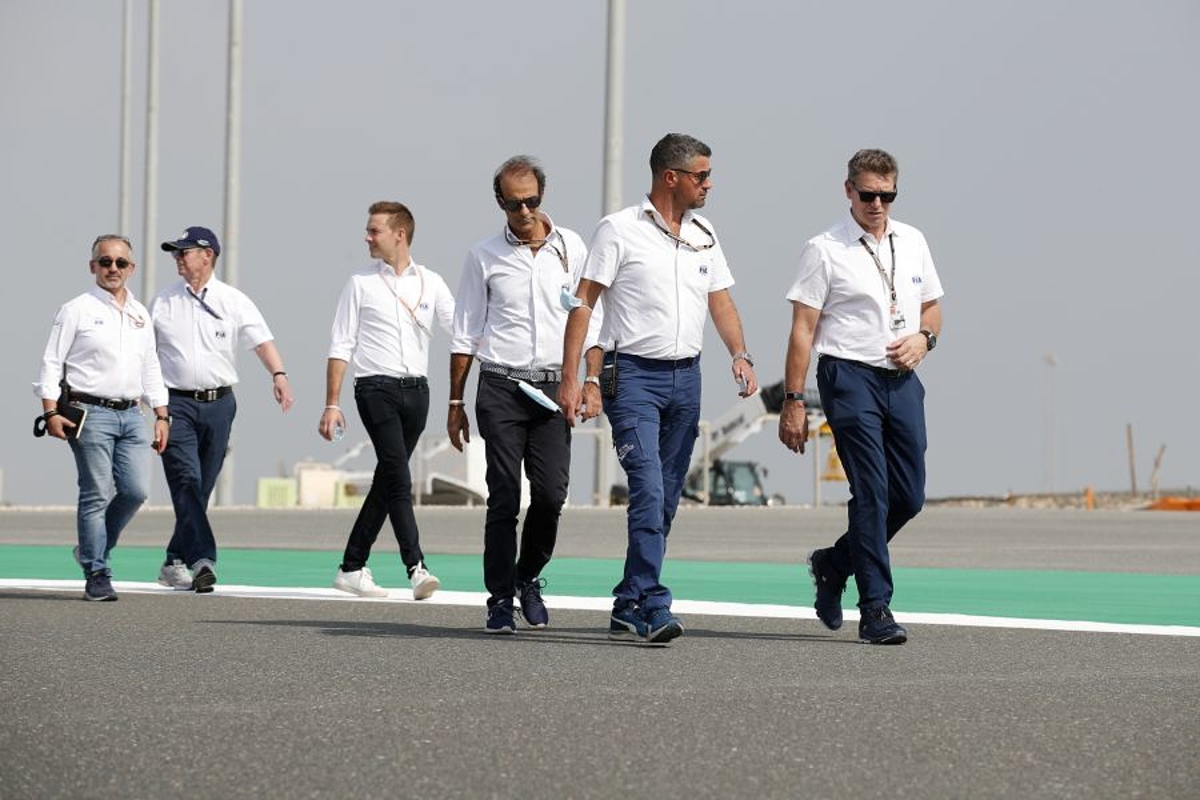FIA race director Michael Masi has defended the time taken for decisions to be made after two separate instances in the past two weeks where cases took almost a day to close.
Lewis Hamilton's disqualification from São Paulo GP qualifying was announced roughly 18 hours after the case was opened, whilst Mercedes' right-of-review hearing for Max Verstappen's defence in that race was concluded after almost 24 hours.
Addressing the concerns over the lengthy stewards' reviews, Masi said: “You need to remember that one of the things you have always asked for - and I would say nearly all of you [in the media], and some of you I know have participated in the stewards’ seminar earlier in the year - is more description in decisions.
“Rather than just saying this person is guilty or this person is not guilty, you actually want as much of an understanding as possible of the process that was gone through.
"Sometimes if there was any other similar types of cases, and you all see that the stewards obviously try and write their decisions be it this weekend, last weekend or any of them that had a level of nuance to them, they put that level of detail in there.
“Obviously, that all takes time to actually go through, draft, write, re-write etcetera.
“We can have decisions, and that is one part. The other part is the teams need to be given the opportunity to present their case."
Adding that the team's input can complicate matters, Masi continued: “If we look at, as an example, Brazil. Effectively, in total over the two days, Mercedes were presenting to the stewards for about two and a half hours.
"You’ve got to take that into account as well, along with sessions and everything in between.
“It’s not just a straightforward [process]. Sometimes the stewards would be happy just to write 'this person has breached the rules', end of the story. But then we go back a few years and all of you [media] said you want more description.”
F1 appeal time limits add further complication
Comparisons have been made between the way stewards treat decision processes to court cases, where a summary is given after a verdict has been made rather than alongside.
When this frame of logic was put to Masi, the Australian commented: “It is a fair point.
"But the other side of it is you need to consider that when you hand your decision down, you’ve suddenly got appeal time limits and everything else that come into it as well.
“The decision that is handed down, teams have to obviously have their right of appeal etcetera, so it’s all of those time limits.”
Related













































 Gran Premio de España 2025
Gran Premio de España 2025  Grand Prix du Canada 2025
Grand Prix du Canada 2025  Grand Prix of Austria 2025
Grand Prix of Austria 2025  Grand Prix of Belgium 2025
Grand Prix of Belgium 2025  Grand Prix of Hungary 2025
Grand Prix of Hungary 2025  Grand Prix of Azerbaijan 2025
Grand Prix of Azerbaijan 2025  Grand Prix of Singapore 2025
Grand Prix of Singapore 2025  Gran Premio de la Ciudad de Mexico 2025
Gran Premio de la Ciudad de Mexico 2025  Grande Prêmio de São Paulo 2025
Grande Prêmio de São Paulo 2025  Qatar Grand Prix 2025
Qatar Grand Prix 2025  Grand Prix of Abu Dhabi 2025
Grand Prix of Abu Dhabi 2025 